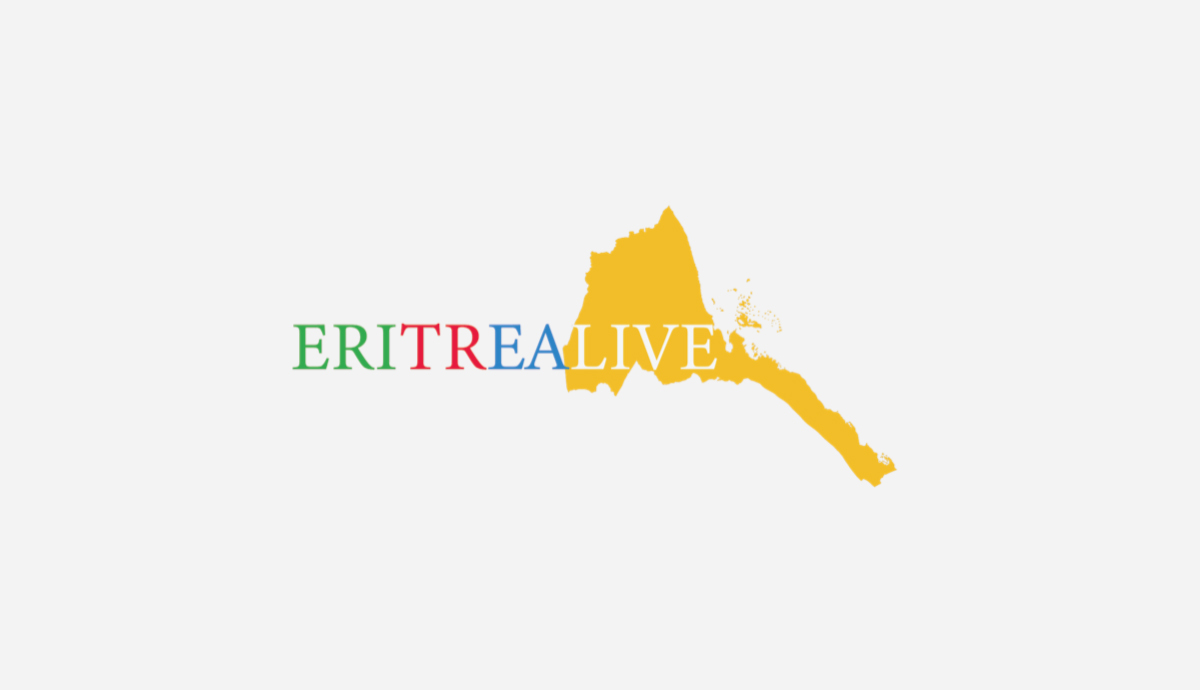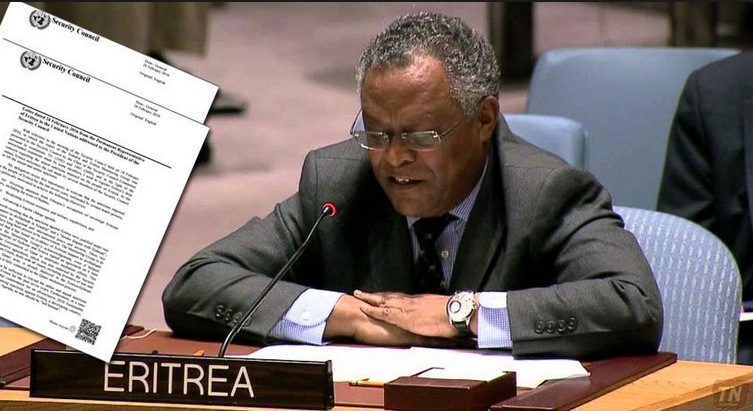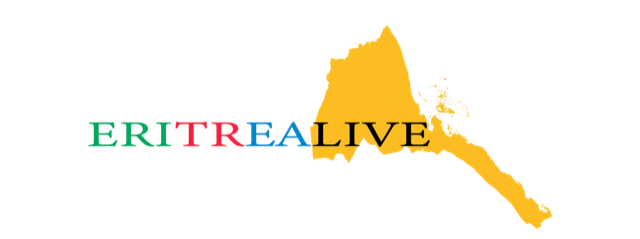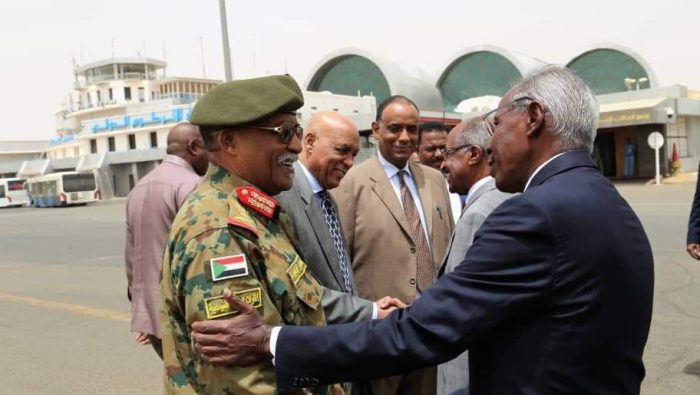Eritrea, Why do sanctions remain?


Credit Tesfanews, Eritrea responds to the Somalia Eritrea Monitoring Group (SEMG) on the issue of sanctions considered as unjust.
Aid to Somali fundamentalism, dispute with Djibouti, violation of embargo, hidden mining revenue, is this why sanctions remain?
The Eritrean response to the United Nations Security Council.
In 2009 the United Nations Security Council sanctioned Eritrea with accusations of supporting the Somali fundamentalist armed groups of Al-Shabab and of failing to resolve the border dispute with Djibouti. Therefore, sanctions were imposed (Resolution 1907).
The package provides for the embargo on the sale of arms and of any other military equipment and the freezing of Eritrean financial resources abroad.
Furthermore, a commission was formed, the Somalia Eritrea Monitoring Group (SEMG) with the task of monitoring the situation in the two Countries (Eritrea and Somalia) and to report to the Council.
So far sanctions have been extended.
On 26th August 2016 the Permanent Mission of the State of Eritrea to the United Nations sent a letter to the Security Council to clarify, once again, its position. Thus asking to lift the sanctions.
First of all, Eritrea rejects the accusation of “failing to co-operate with the SEMG”, mentioning the 15 meetings, the many video-conferences and the constant dialogue maintained with the monitoring group, from its establishment to the present day.
One of the points in the sanctions, the conflict with Djibouti, has been resolved.
The conflict, which lasted two years, from 2008 to 2010, according to UN sources, allegedly caused the death of 35 people and the injuring of many others from both sides.
In 2010 it ended with an agreement. Thanks to the mediation of the Emir of Qatar, Shikh Hamad Bin Khalifa al Thani, peace on the issue of the Eritrea – Djibouti border, which had remained pending since colonial times, was achieved.
The United Nations Security Council is still asking Eritrea whether there are still prisoners of war in its prisons.
A question, explained Eritrea, which was definitively closed on 16th March 2016, as confirmed in the letter addressed to the Commission itself by the Emir of Qatar.
In the letter Qatar writes that there are no more prisoners of war in Eritrea.
There were seven prisoners, two escaped, one is dead and the remaining four were released with the mediation of Qatar, as provided in the treaty signed in 2010.
Allegations that there are still prisoners of war, states Eritrea, is a false statement without foundation and adds: “you cannot understand why the SEMG accepts these accusations, without proof, coming from some groups in Djibouti”.
Could this be one of the reasons why sanctions remain?
The other accusation, which lead to the sanctions, is the alleged support of Somali terrorism by Eritrea.
Throughout these years, however, the SEMG itself declared, in its reports, that no proof of such Eritrean support to Al Shabab was found.
The accusation and relevant sanctions should have been lifted.
The accusation, says Eritrea, has been modified, instead. It has become a more generic and undefined “aid to armed groups”.
Insinuating, in a not so elusive way, that the perpetual Eritrea-Ethiopia infighting is allegedly at the basis of this support.
The SEMG, says Eritrea, has shifted the accusation. Eritrea does not back Somali fundamentalist groups, but allegedly arms groups in other countries.
It is implied that Asmara’s backing is given to Ethiopian groups in conflict with the Government of Addis Abeba.
The SEMG, however, ignores Ethiopia’s aggressiveness against Eritrea in the last months.
“On 12th June” recalls the Eritrean document “Ethiopia attacked Eritrea in the Tsorona area”.
Eritrea asked the Security Council to take a stand, but nothing happened.
On 5th July 2016, during a speech in Parliament, the Ethiopian Prime Minister confirmed the attack against Eritrea. Adding that more would follow.
On 28th June 2016 the Ethiopian Defense Minister spoke harsh words against Eritrea, saying that “it would have something to fear”.
Many other threatening official declarations in the same tenor have been made.
Not distant, therefore, from those made in 2012 by the former prime minister, Meles Zenawi who, during a speech in Parliament, assured that Ethiopia would do all possible for a “regime change” in Eritrea. Above all, that it would help activists against the Government of Asmara.
The fact that Ethiopia is today facing a profound internal crisis is not a problem caused by Eritrea.
Two numerically significant groups, the Oromo and Amhara groups, accuse the Ethiopian Government of leaving them no role whatsoever in the political, social and economic life of the country.
Although the international press is unenthusiastically covering these conflicts, which caused many casualties and injured, it is apparent that the cause is to be found inside Ethiopia itself.
Eritrea further points out that it has not violated the arms embargo imposed by the UN resolution. “the arms embargo situation”, it highlights, “was used by Ethiopia to its own advantage”.
Ethiopian troops, in fact, continue to remain within Eritrean territory, in spite of the Algiers Agreement (2002).
But it is Eritrea the one, which is sanctioned.
Other points raised against Eritrea by the SEMG fall outside its officially established scope, involving the sphere of the political life of the Country, says Eritrea.
In this sense is the criticism of the 2% tax. An income tax paid by all citizens, both inside the Country and abroad, born for the reconstruction of the Country, after the thirty years’ fight for independence (achieved in 1993).
Furthermore, the SEMG states that there is no clarity on the destination of revenue from the Bisha Mine.
Eritrea replies that, from the mining sector, it has achieved 200 million dollars each year. Adding, though, that the expenses born by the Country for education, healthcare and food safety amount to 300 million dollars a year, to which a further 300 million must be added for the purchase of fuel.
There are no deceptions. Eritrea takes nothing away from its citizens. It is asking, instead, that sanctions are lifted, because it is unfair that Eritrean citizens pay the price.
After all, the 2030 UN Agenda for the sustainable development of all countries, is based on the motto: “no one must be left behind”.
But how can Eritrea keep the pace, speed up development, improve the standards of life of its population while it is the victim of sanctions, which have been surpassed by the apparent irrelevance of accusations?
Marilena Dolce
@EritreaLive




Lascia un commento